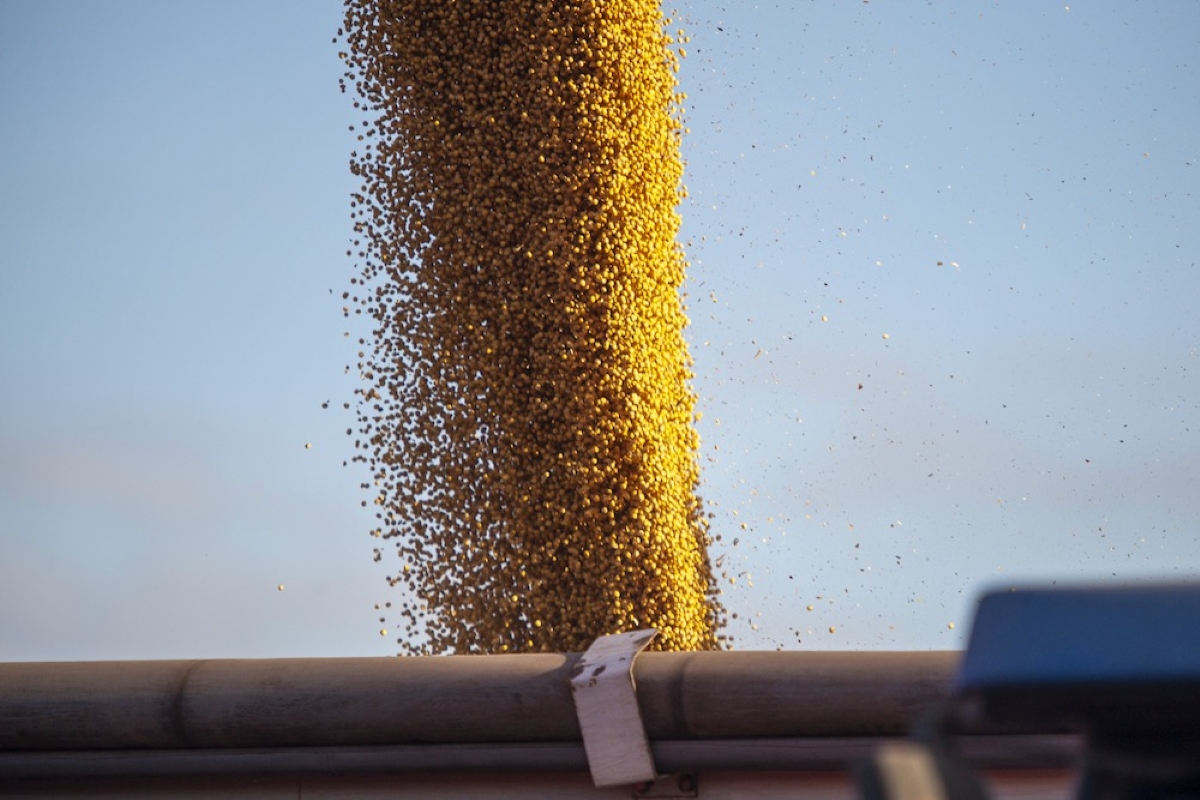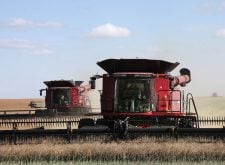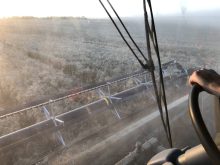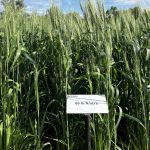Farmers owed $7.1 million by W.A. Grain and Pulse Solutions, which had facilities in Alberta and Saskatchewan, will get $5.6 million, or about 80 per cent of the money owed to them, via the Canadian Grain Commission’s (CGC) Safeguards for Grain Farmers Program.
“While we regret producers didn’t get 100 per cent (of what they were owed) we worked diligently to maximize the amount they were paid for their deliveries,” Remi Gosselin, the CGC’s head of communications and corporate information services said in an interview Wednesday.
While most of the money comes from security W.A. Grain posted to cover farmer liabilities as required under the Canada Grain Act, some came through CGC efforts during the bankruptcy process.
Read Also

Brazil to reap record soy crop in 2025/2026, increase exports
Brazil’s Conab said the country will reap a record soybean crop of 177.6 million tons in the 2025/2026 harvest year, according to data released on Thursday.
Why it matters: While the Canadian Grain Commission tries to ensure grain companies post enough security to cover what they owe farmers for grain, sometimes, as in this case, it falls short. That’s why the CGC urges farmers to get paid upon delivery and cash their cheques immediately.
The CGC suspended W.A. Grain’s grain dealer licence and five primary elevator licences on April 20 last year; the company entered receivership April 26. Court orders were granted Sept. 23 approving the sales of the company’s five sites in Western Canada to three separate buyers.
The CGC determined 126 farmers owed money for grain delivered to W.A. Grain were eligible for a share of funds secured by the commission.
To qualify, farmers needed official receipts documenting deliveries, which had to have occurred within 90 days of delivery or 30 days of getting a cheque.
Of the $5.6 million in compensation, $4 million — representing about 71 per cent of the total — came through security W.A. Grain posted with the CGC, as is required under the Canada Grain Act, Gosselin said.
Just under $200,000 — 3.6 per cent of the total — came through the bankruptcy process.
“The Canadian Grain Commission had to intervene before the courts,” Gosselin said. “We used the Canada Grain Act to maximize compensation for all eligible producers. Under a distribution plan that was approved by the Court of Queen’s Bench eligible claimants were able to receive funds from three different pools of money.
“The CGC has always held that grain in inventory that was not paid for still belonged to producers. What happened in previous situations is that receivers would basically come in and liquidate all assets and then provide the money to secured creditors,” which didn’t include farmers who hadn’t been paid, he said.
The commission he said, has “successfully over the past few years argued before receivers and before the courts that that part of that money belongs to producers.”
In one case a few years ago some unpaid farmers were able to retrieve ‘like grain’ from a financially troubled grain company, reducing the amount of posted security needed to compensate farmers.
In the W.A. Grain case the $1.5 million shortfall in compensation averages more than $11,900 per farmer.
Ideally grain companies security held by the CGC should cover farmer liabilities, but that’s not always so, despite the CGC’s best efforts.
“An important point here is that the payment protection program at the grain commission never guarantees that producers will be fully compensated for licensee failures,” Gosselin said.
The commission, he said, fixes the amount of security to be provide by licensees based on monthly liability reports submitted by the licensees and licensees are responsible for the accuracy and completeness of those reports.
“If we feel there are some issues there we will conduct audits to make sure that reports have been completed properly.”
Those audits, he said, are done on the resources that are available at the grain commission for that purpose. Priority is put on audits of licensees about which the grain commission has received complaints from producers about slow payments, and/or where previous audits “have indicated problems.”
When the CGC suspended W.A. Grain’s license, it didn’t have enough security to cover what farmers were owed.
“I’d like to remind producers to cash their cheques upon receipt and if you don’t you’re lending your money to your grain company,” Gosselin said. “The best protection against the risk of failure is cashing cheques promptly.
“Over the last 30 years our payout record is 94 per cent of eligible claims.”
— Allan Dawson is a reporter for the Manitoba Co-operator at Miami, Man.















